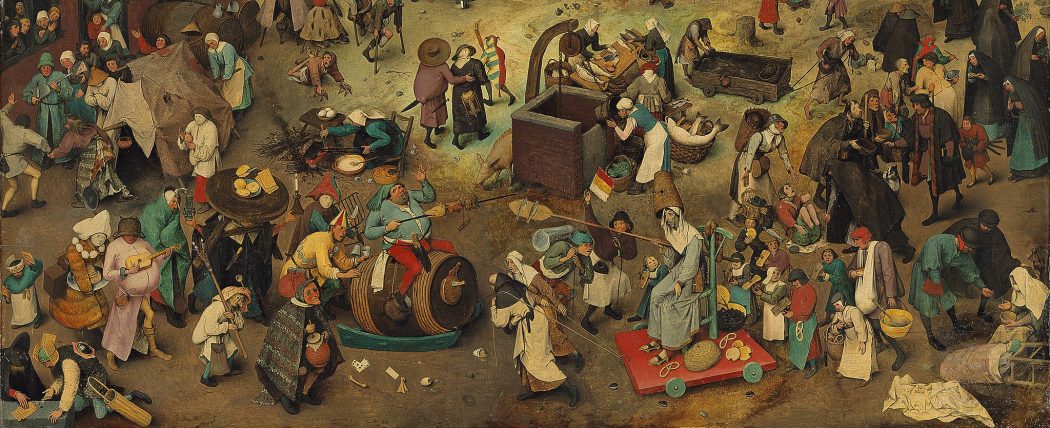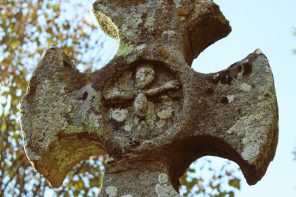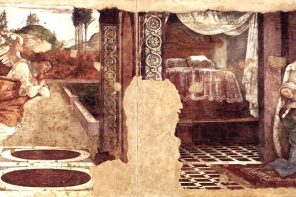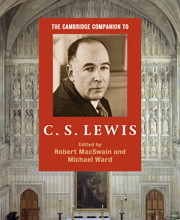Many may wonder if the dogmatic claims in doctrinal statements such as the Apostle’s Creed are still true or relevant to the lives of modern Christians. Joseph Ratzinger takes up this question in his introduction to Christianity and concludes that ‘[faith] can have final statements—dogma and Creed—in which its intrinsic finality is articulated’. [1] Creedal truth, as Ratzinger continues, may be more maturely understood, but it can never be superseded. [2] The question of how to mature in understanding or make the salvific nature of the creedal truths apparent to generations who grow deaf or blind to their startling message is not a new one. Fyodor Dostoevsky, the nineteenth-century Russian novelist, confronts this very problem in his novel The Idiot.
Prince Myshkin is a failed Christ figure who nonetheless presents a challenge to hierarchies by dimly reflecting the light of Christ’s example. Rowan Williams emphasizes the distorted aspects of this reflection of Christ. He argues that Dostoevsky’s attempt to create a ‘truly beautiful man’ by employing memory loss and separation from society to extend his innocence is a narrative move that contradicts the original purpose of the novel: ‘as the narrative advances, it becomes obvious that this timeless virtue has no resources of memory and critical self-awareness to make it effective in the world of human relations’. [3] I will argue that Myshkin, despite his ‘lack of critical self-awareness’, is still able to challenge hierarchies, albeit as an imperfect reflection of Christ’s original challenge. David Brown insists that Myshkin’s innocence and naivety means that he makes readers ‘react’ without necessarily immediately making them ‘think of Christ’. [4] And according to Joseph Frank, the gap between Dostoevsky’s purported aim of depicting a ‘truly beautiful’ person and the fallibility of Myshkin should not surprise readers given the ‘impossibility … for any terrestrial being fully to realize the Christian ideal’. [5] But Dostoevsky, while recognizing the intransigence of human fallibility, uses Myshkin’s flawed imitation of Christ’s love to remind readers that ‘the Incarnation had set before mankind a goal toward which it must eternally aspire’. [6]
David Bentley Hart, in his theological reflection on aesthetics and Christian truth, The Beauty of the Infinite, explains the implications of the creedal claim that Jesus Christ ‘was conceived by the Holy Spirit’ and ‘born of the Virgin Mary’: ‘God is made manifest in the interval opened by the divine persons, and so is seen in the coincidence in Christ’s life of obedience and grace and grandeur and lowliness, in all their mystery’. [7] This vision of the trinity explores the way in which God’s incarnation involves a self-emptying that transcends worldly hierarchies: ‘[the] divine has no proper “place”; belongs to no hierarchy within totality; it is the infinite context of every place’. [8] And in The Idiot, Myshkin embodies an analogous challenge to worldly hierarchies. Mikhail Bakhtin argues that Myshkin’s presence brings about a state of carnival. During the Christian season of carnival, hierarchies are inverted: the fool becomes the king and the poor man feasts as if he is rich. Bakhtin sees this process taking effect in the novel: ‘[w]herever Prince Myshkin appears, hierarchical barriers between people suddenly become penetrable, an inner contact is formed between them, a carnival frankness is born’. [9] Dostoevsky, through the character of Prince Myshkin, explores the ways that even a failed Christ figure can follow Christ in emptying himself and challenging hierarchies within the context of nineteenth-century Russian society.
In the following article, I look at two examples of this theologically instructive form of failure: Myshkin’s failed attempts to live up to the ideal of incarnation, and the failure of other characters to understand these attempts. First, I consider how Myshkin’s attempt to introduce Christ-like love into his spousal relationships with Nastasia and Aglaia results in a confusion of loves and injury to all three parties. Then, I explore the ways that Myshkin’s attempts to love the humble and challenge the aristocracy reveal something about Christ’s own confrontation with the elites of his day. The doctrine of the incarnation describes an eternal truth that transcends hierarchies, and Dostoevsky shows that even a failure to live up to the ideals of Christ’s incarnation can be instructive, communicating truths about how to rightly love and challenge injustice.
The Promise of a Universal Love
Prince Myshkin’s attempt to introduce a pure Christian love into his romantic relationships results in his confusing egoistic erotic love for a potential spouse and universal agapeic love. Early on, the Epanchins ask Prince Myshkin if he plans to marry, and he explains that he is too sick to take a wife. One of Myshkin’s greatest failures in his attempt to follow Christ occurs in relation to his inability to stand by this statement. In fact, Myshkin promises himself to not one but two women: first Nastasya, then Aglaia. Joseph Frank sees in the notebooks for The Idiot and the novel itself a clear indication of what Dostoevsky believed: ‘Even the family, the purest and most moral earthly love, is an expression of the ego and prevents the fusion of individuals into a loving earthly unity. There is a fundamental contradiction between Christ’s commandment of universal love and sexual love of any kind’. [10] Therefore, when Myshkin opens the door to marriage, he closes the door to his Christ-like mission to Russian society. He aims to choose agape over eros, and hence he chooses his pity for Nastasya over his spousal desire for Aglaia at the critical moment. Yet, as Frank notes, this is an impure decision, given the limits of the fallen human condition: ‘Dostoevsky does not really believe that a perfect agape-love is possible for a human being. It is accessible only to Christ. Humans, by the very nature of their being, will always retain a component of eros-love’. [11]
Frank insists that egoistic concerns play into the formation of a stable marriage and flourishing family. Therefore, by trying to reject the desires of his own ego for Aglaia and choose his pity for Nastasia, Myshkin fails to incarnate the pure love of Christ and even fails to exercise the conventional love of a good spouse. St. Petersburg society places the egoistic erotic love that leads to the formation of families in a place of higher priority than the universal agapeic love that leads to Christian self-sacrifice. By trying to reverse this hierarchy in his own romantic life, Myshkin confuses how eros and agape function in a fallen world.
Due to this confusion of loves, Myshkin’s attempt to reject the conventional hierarchical privileging of family and eros over agape results in his most disastrous failure. Christ refused to marry, rejected the allure of erotic sexual love, and gave himself fully over to agape. Myshkin, in contrast, attempts to fulfill his erotic desire, his longing for sexual union and marriage, with an agapeic expression of love, choosing Nastasya over Aglaia, and this contributes to the ruin of all three parties. Nastasya rejects Myshkin’s pity and throws herself into the homicidal hands of Rogózhin, Aglaia marries a false Polish count, and the prince loses his mind and returns to the care of Dr. Schneider in Switzerland. According to Frank, Dostoevsky’s rejection of a social gospel means that he does not believe that Christian love necessarily translates to worldly success. [12] However, Prince Myshkin’s mistreatment of Aglaia and Nastasia leads him to not only fail in the world’s eyes but eventually embrace Nastasia’s murderer and lose his mind.
Redemption for the Aristocrats
Unlike the reversal Myshkin attempts between egoistic eros and universal agape, his approach to social structure appears quite different. Instead of calling for a clear overturning among classes, Myshkin attempts to redeem the aristocracy. When he first arrives in the Epanchins’ house, he carries on a conversation with the butler on the inappropriate theme of capital punishment and the final moral torments of the condemned. As Bakhtin observes, his conversation has a carnivalizing effect, as he succeeds in entering into inner contact with this ‘stuffy and limited’ servant. [13] When Aglaia, one of Prince Myshkin’s eventual love interests, hears about Myshkin’s conversation with the valet, she concludes: ‘The prince is a democrat’. [14] The assumption that Prince Myshkin has merely adopted the ideology of a democrat appears repeatedly throughout the novel, but it fails to capture the complexity of his character – a complexity that echoes Christ’s response to hierarchy. It is not only Myshkin who falls short of fully reflecting Christ’s light. Those who misunderstand and misinterpret him resemble the religious and political leaders who misconstrued Christ’s purposes.
Christ’s challenge to hierarchy is not merely political, and neither is Myshkin’s.
As Prince Myshkin’s relationship with Aglaia develops, her parents decide to host a party to introduce him to the upper echelons of Russian society. The prince, if an actual democrat, would likely want to give away his inheritance and title and see these other aristocrats and royals do the same. However, he arrives at the party with different convictions (stated in the manic words of a man about to suffer an epileptic episode): ‘Now, you’re not offended when I tell you to your face that you’re ridiculous? And if so, aren’t you material? You know, in my opinion it’s sometimes even good to be ridiculous, if not better: we can the sooner forgive each other, the sooner humble ourselves’. [15] Although Myshkin arrives with concerns that he will embarrass himself and jeopardize his chances with Aglaia, he also fears for the future of his class and the state of their souls. Abroad, he has heard that they are proud and out of date. However, he believes that humility and honesty, the values motivating his speech, could redeem them:
It is to save us all that I speak, to keep our estate from vanishing for nothing, in the darkness, having realized nothing, squabbling over everything and losing everything. Why vanish and yield our place to others, when we can remain the vanguard and the elders? Let us be the vanguard, then we shall be the elders. Let us become servants, in order to be elders. [16]
Aglaia and the many others who assume the prince longs to abolish hierarchy fail to understand his mission. Christ proclaims that his kingdom is not of this world and refuses any worldly revolution. [17] Myshkin, likewise, longs for a spiritual and moral transformation. His initial call for the aristocrats to recognize their ridiculousness and need for humility seems intended to prepare them for his final argument. The Russian aristocracy can only survive, can only flourish, if the first become last, if the princes serve the least of these. The prince’s speech proves ineffectual and the partygoers, at least those outside of the Epanchin family, leave dismayed by, and worried about, the prince.
Myshkin, although unable to redeem the Russian hierarchy, challenges them in a manner consonant with contemporary Christian discussions of authority and democracy. John Milbank, in The Politics of Virtue, for instance, argues for a politics of paradox. Healthy democratic institutions rely on healthy forms of authority. As he states when surveying the contemporary revolt against authority: ‘hierarchy has not been abolished or even tempered – because it cannot in principle be abolished at all, unless real anarchy were possible (which is identical with “pure democracy”)’. [18] Myshkin, confused for a democrat, actually longs to see a more Christian, a more sacrificial, traditional order. Milbank similarly sees the value of monarchic and aristocratic leaders who serve their people across the generations:
So where supposedly ‘radical’ politics imagines that it is deposing hierarchy in space, it is in fact ignoring the political dimension of time and the democratic interests of all in sustaining certain representative dynastic and para-dynastic continuities through the ages, if intrinsic values are not to be exchanged for those of abstract wealth and ephemeral prestige. [19]
Christ’s challenge to hierarchy is not merely political, and neither is Myshkin’s. Although many characters assume that he is a democrat, he denies this and attempts to persuade the aristocrats and royalty to serve the people and make themselves worthy of their leadership roles through sacrifice.
Conclusion
Bakhtin sees the power and weakness of Myshkin that leads to his tragic end: ‘In Myshkin this detachment from the ordinary relationships of life, the constant inappropriateness of his personality and his behavior impart to him a certain integrity, almost a naivete; he is precisely an “idiot”’. [20] The same inappropriateness which empowers him to challenge the hierarchies of Petersburg contributes to the eventual failure of his mind. The Idiot, in its juxtaposition of the immature and deeply flawed Christ figure Myshkin with the worldly hierarchies of St. Petersburg demonstrates the power of the incarnation, of Christ’s light, even dimly reflected, to reveal injustice and possibilities for change.
Image Credit
Pieter Bruegel the Elder, The Fight between Carnival and Lent (1559), https://commons.wikimedia.org/wiki/File:Pieter_Bruegel_d._Ä._066.jpg.
Notes
[1] Joseph Ratzinger, Introduction to Christianity, rev. ed., trans. J. R. Foster (1968; San Francisco: Ignatius Books, 2004), 119.
[2] Ibid.
[3] Rowan Williams, Dostoevsky: Language, Faith, and Fiction (London: Continuum Books, 2009), 48.
[4] David Brown, Discipleship and Imagination: Christian Tradition and Truth (Oxford: Oxford University Press, 2004), 96.
[5] Joseph Frank, Dostoevsky: The Miraculous Years, 1865-1871 (Princeton: Princeton University Press, 1995,) 254.
[6] Ibid.
[7] David Bentley Hart, The Beauty of the Infinite: The Aesthetics of Christian Truth (Grand Rapids, MI: Eerdmans, 2003), 323.
[8] Ibid.
[9] Mikhail Bakhtin, Problems of Dostoevsky’s Poetics, ed. and trans. Caryl Emerson (Minneapolis: University of Minnesota Press, 1984), 174.
[10] Joseph Frank, Lectures on Dostoevsky (Princeton: Princeton University Press, 2020), 140.
[11] Ibid., 139.
[12] Ibid., 133.
[13] Bakhtin, Problems, 174.
[14] Fyodor Dostoevsky, The Idiot, trans. Richard Pevear and Larissa Volokhonsky (New York: Random House, 2001), 63.
[15] Ibid., 553.
[16] Ibid.
[17] For examples of Christ and his followers using unconventional means to challenge unjust hierarchies, see John 18:36, Luke 22:49-51, and Romans 13:1-10.
[18] John Milbank and Adrian Pabst, The Politics of Virtue: Post-Liberalism and the Human Future (London: Rowan and Littlefield International, 2016), 166.
[19] Ibid., 253.
[20] Bakhtin, Problems, 173.





